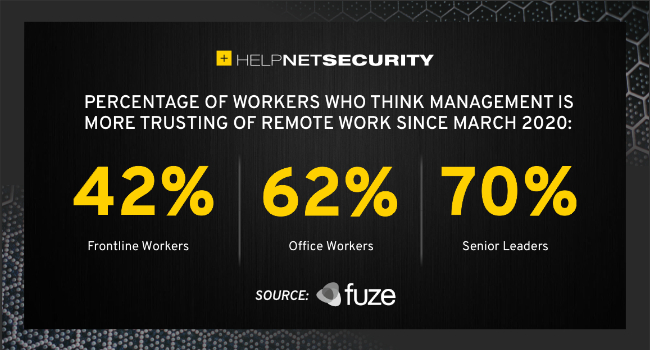Flexible work is the new operating model
As flexible work is increasingly viewed as an expectation for the working world, attitudes continue to vary widely across industries, roles and geographies, a Fuze study reveals.

The report reinforces that organizations and business leaders should not consider flexible work as a ‘one-size-fits-all’ benefit, but a personalized experience that should be tailored to an individual’s unique work preferences, role within their team, industry practices, aligned to goals and expected outcomes, and established through a foundation of trust.
Results from the study were collected from more than 8,800 frontline and office workers in the United States, United Kingdom, France and Australia, and across a number of core industries, including manufacturing, retail, professional services, financial services, and software and technology.
Most employees prefer flexible work
Among the key findings from the study, 75 percent reported that flexible work should be an essential part of how people work. In most regions, a full-time return to the office or worksite mandate could result in destabilizing job churn.
In the UK, US, and Australia, 67 percent of employees would consider finding a new job for greater flexibility in when and how they work. In France, 57 percent of employees would consider finding a new job for greater flexibility. However, trust in flexible work varies widely across roles.
Across all regions, 54 percent of workers think management is more trusting of remote work, while 70 percent of senior leaders believe management is more trusting, highlighting a gap between management’s new-found trust in remote work and employee perception of that trust.
The gap in trust toward remote work is also reflected by role, with office workers (73 percent) more likely to say they are more trusting of remote work compared to frontline workers (50 percent). This may be credited to the lack of flexible work options traditionally offered to frontline workers versus office workers.
Frontline workers perceive flexible work differently than office workers
42 percent of frontline workers believe management is trustworthy of remote work, compared to 62 percent of office workers. 78 percent of frontline workers also report that their organization requires them to be in their current working location versus only 60 percent of office workers.
However, 63 percent of frontline workers say they would be willing to change jobs for more flexibility.
Remote workers feel more productive
For those working remotely full-time, 60 percent say they are more productive at home than they were in the office.
However, this feeling of productivity varies across regions with 70 percent of Australian respondents saying that they felt more productive versus only 52 percent of UK respondents.
Companies must reshape their culture of video meetings to drive engagement
In every industry, every job category, and every region, fewer than 10 percent of workers consider seeing someone’s face the most critical part of an effective meeting.
For workers who report being happier at home, if their day is packed with meetings they become less engaged and productive. In fact, 59 percent of respondents say they would like to spend less than two hours a day in video meetings.
Companies must establish a structure for the work day to prevent burnout
Only 66 percent of respondents say they are ensuring they take a break every day. In addition, a quarter of respondents report that they find themselves working longer hours since they started working remotely.
“Over the last year, the pandemic forced many organizations to digitally transform and embrace flexible work,” said Brian Day, CEO, Fuze.
“While office workers have been at the forefront of the flexible work conversation for years, other segments of the workforce are playing a critical role in the movement’s evolution. This study provides organizations with the foundational data required to inform their approach to flexible work and empower employees to be more engaged and productive.”